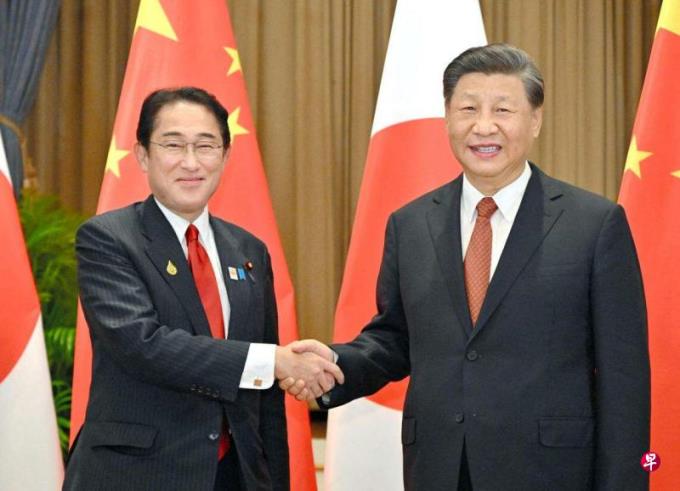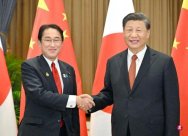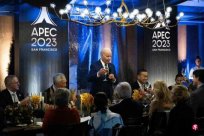
A talks held on November 15th, the heads of state of the United States and China, indicating that the relationship between the two countries has returned to the level of summit talks and military exchanges.However, the content of the talks is neither above this nor the bottom.At present, US -China relations are in the state of "long -term severe competition". As the name suggests, the "competition" itself has the winner and the loser.Both sides believe that they will become a winner, but both sides have clearly stated that there will be no conflict at the time of competition and try to cooperate as much as possible.However, it is difficult to achieve "non -conflict" and "try to cooperate" while "competing".Because of this, the two countries need to control this relationship through close communication.
The US -China summit talks have restored the US -China relations that have been interrupted since the Chinese balloon entered the United States.Of course, for the U.S. government Biden, the significance of the talks is that Xi Jinping, the Chinese President Xi Jinping, can directly convey the information to the Chinese President of the Leading authority; and before the presidential election next year, it is also an excellent opportunity to talk to China.On the contrary, for the Xi Jinping government, there is a domestic economic problem and the Taiwan Strait crisis. It is necessary to control the relationship with the United States.
The focus of competition between the United States and China lies in military security issues, cutting -edge technology issues, and human rights.Taiwan issues involve these three points.In the talks, the Taiwan issue seems to be one of the focus.However, the United States and China are likely to claim the principles and intentions of Taiwan's Taiwan policy.As for the Middle East and climate change issues, it is possible that some "cooperation" and information exchange may be achieved.The two countries showed "cooperation" together, but to how much they achieved "cooperation" are still unknown.
This shows that US -China relations have been positioned to a certain extent, that is, the two countries have reached consensus, or competition and their rules are forming.On the contrary, compared with the relationship between Japan and China and the United States and China, there are fewer conversations between high -levels, and even the nature of the relationship is not clear.
Since the Japanese Prime Minister Kishita Tianshio took office, it has not been active in China, which also has the influence of domestic politics from Japan.Kishida came from the Hongchi Association of the Liberal Democratic Party who attaches great importance to the relationship between China.About 85%of the citizens of Japan held a negative attitude towards China. The people call Kishida "pro -China", and the conservatives of the Liberal Democratic Party have also opposed it.Because of this, Kishida is also difficult to promote relations with China while considering the election.In fact, it is clear that it is almost the same period as Kishida's speech to "Nakako will not dissolve the House of Representatives" as Kishida "will not dissolve the House of Representatives during the year." It also illustrates this.
The last time, at the Japanese -middle -headed talks in November 2022, Kishida hoped to create a "constructive and stable" Japanese -China relations, and China also basically agreed.This means that the relationship can be within the scope of communication; this meeting, Japan and China once again confirmed the initiative of the "strategic mutual reciprocity relationship" initiated by Abe's first regime in 2006 in 2006.Since 2009, Japan -China relations have deteriorated seriously.In view of this, Japan can clearly stated that it will continue to maintain a strategic mutual benefit relationship established in 2006, which is of positive significance to improve the relationship between the two countries.Because the framework was established at the time, Japan had economic advantages.Perhaps China hopes that this relationship is based on the current situation of 2023.In any case, the question is what can be done under this strategic mutual benefit and how to concretely.At the upcoming meeting of China -Japan and South Korea leaders, Kishida and Chinese Prime Minister Li Qiang will hold a summit to discuss specific plans.
One of the focus of the Japanese leader talks, perhaps on the occasion of the 45th anniversary of the conclusion of the peace and friendly treaty of Japan, whether it can establish a framework for security management and other communication, as well as the problem of the prohibition of imports from the import of Fukushima, and Japanese business people.Individual issues such as detention.
At this summit, the leaders of the two sides may also discuss the security mechanisms and military exchanges of the East China Sea.If the problem is implemented in this regard, it will be a big result.On the Fukushima issue and the Japanese detention, the Japanese side seemed to just protest.
Japan -China summit talks to restart the strategic mutual benefit relationship, which is commendable, but still lacks specific content.Next, look at the specific actions of Kishida and Li Qiang.Nevertheless, if the mid -day summit talks have not achieved significant results, at least in Japan, the possibility of Kishida's support rate recovery.
The author is a professor at the University of Tokyo



